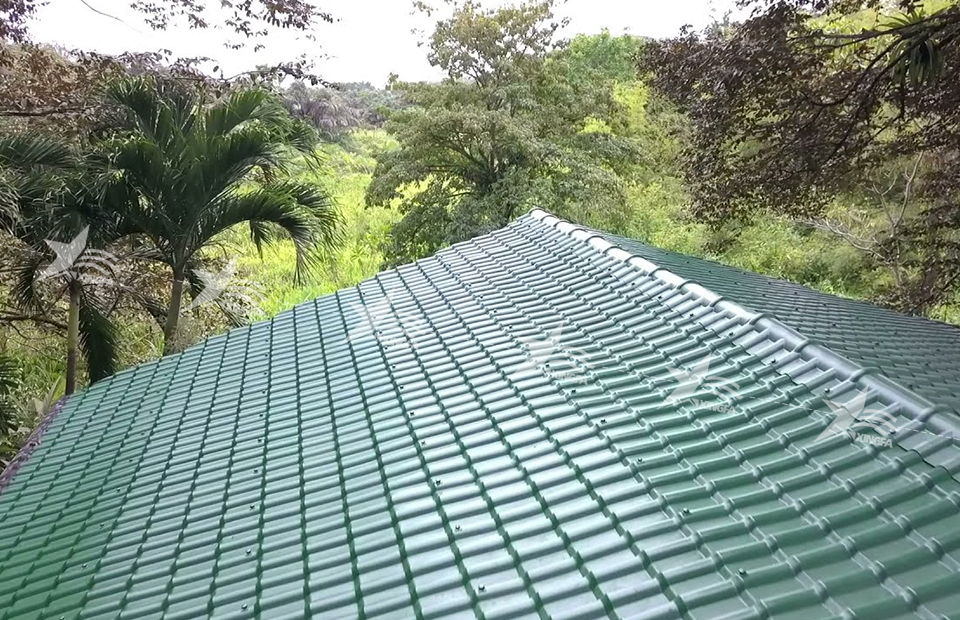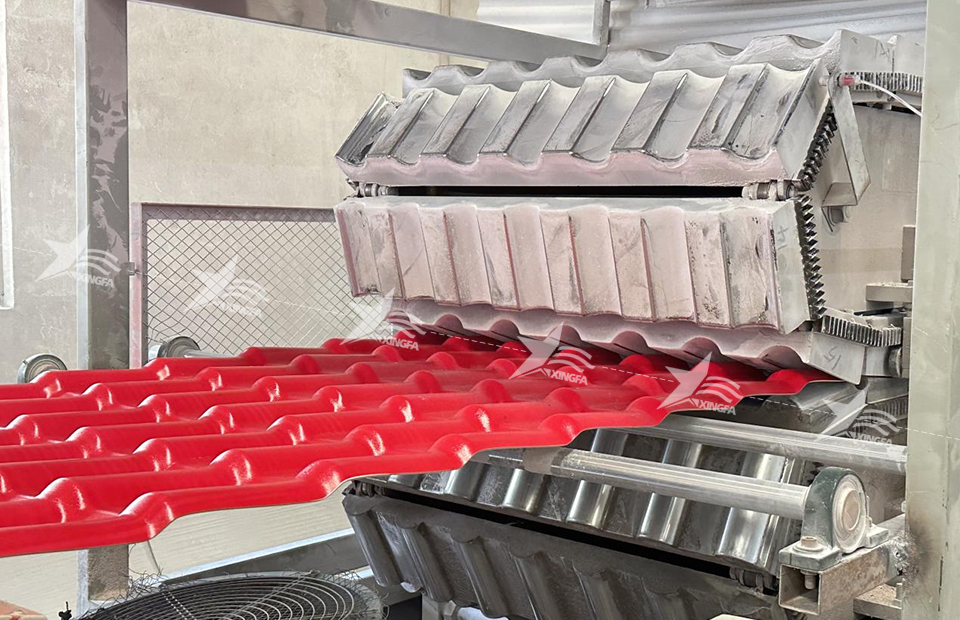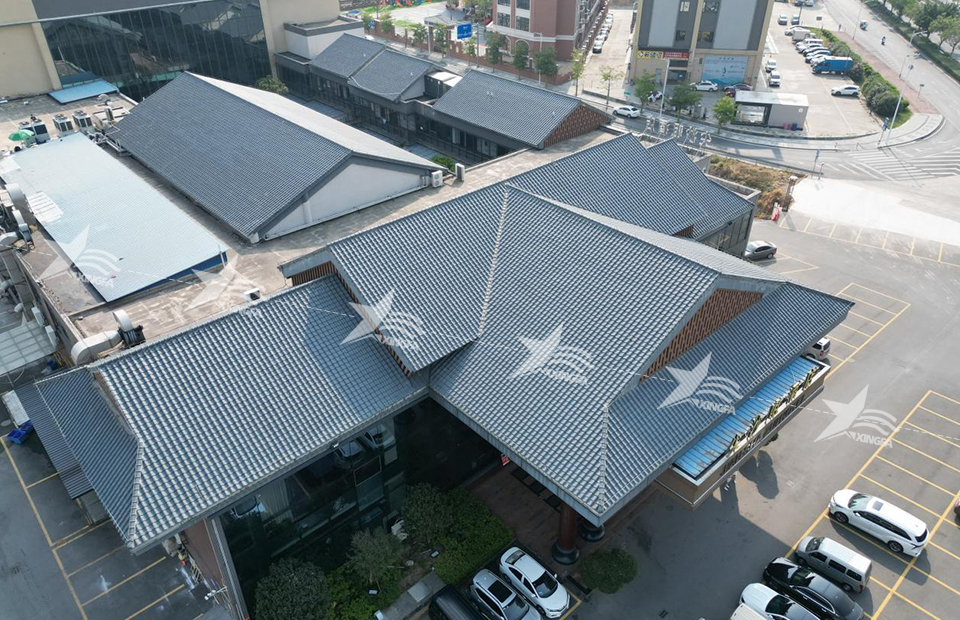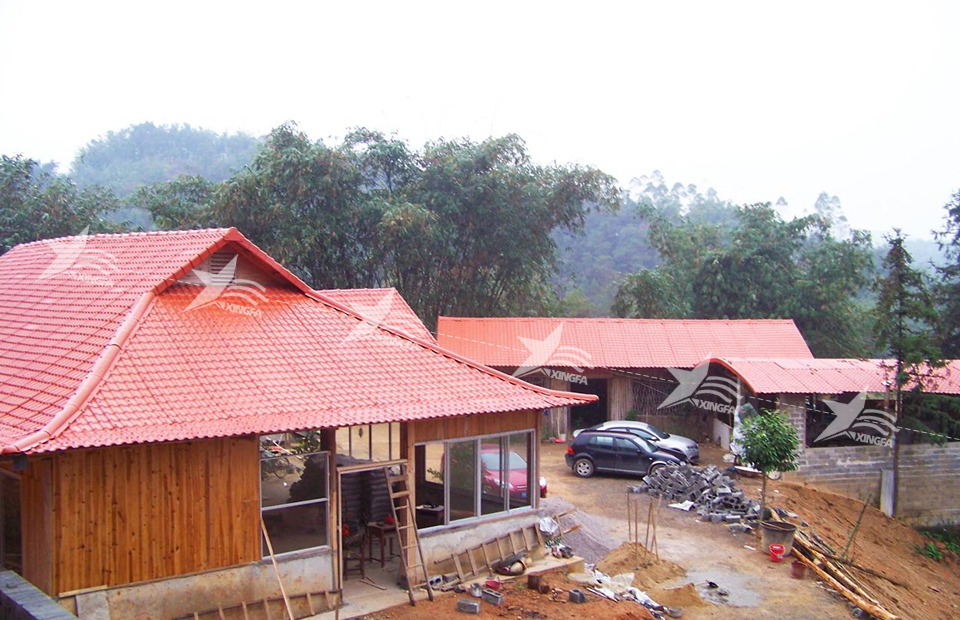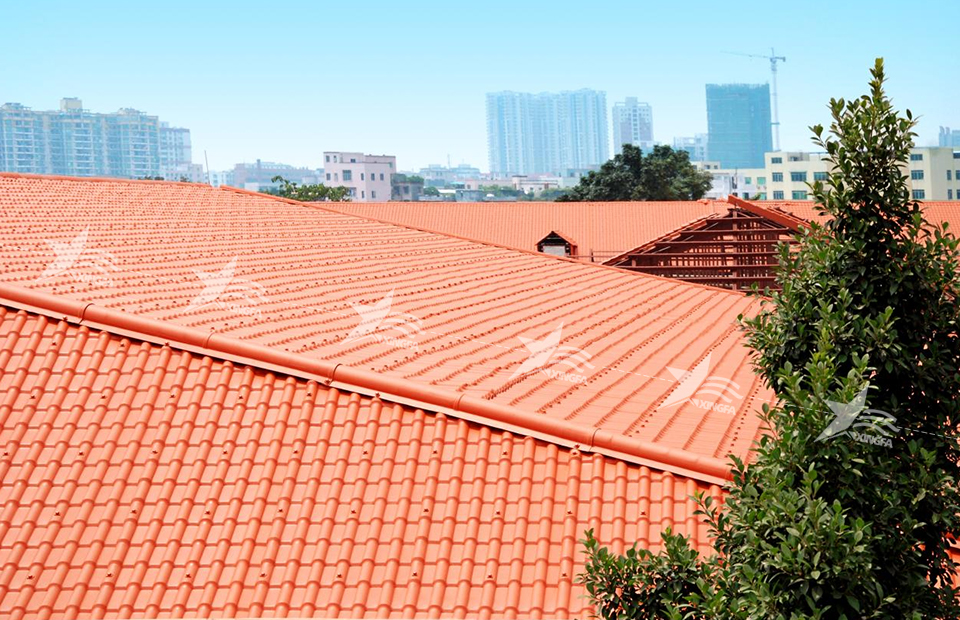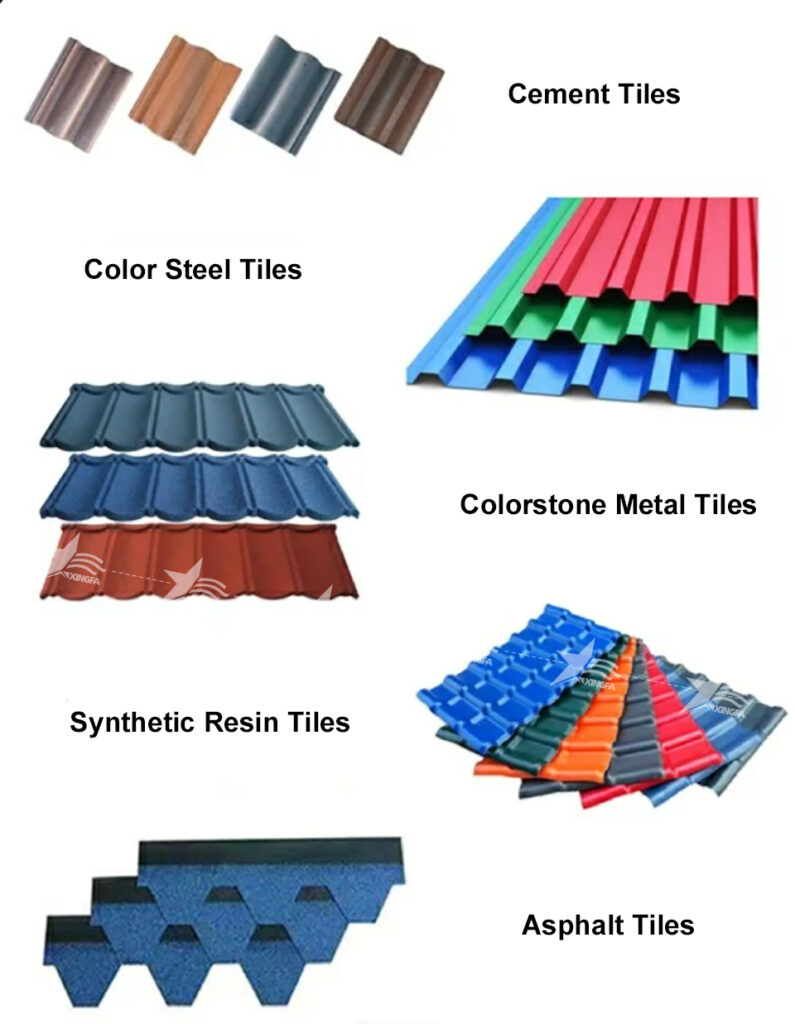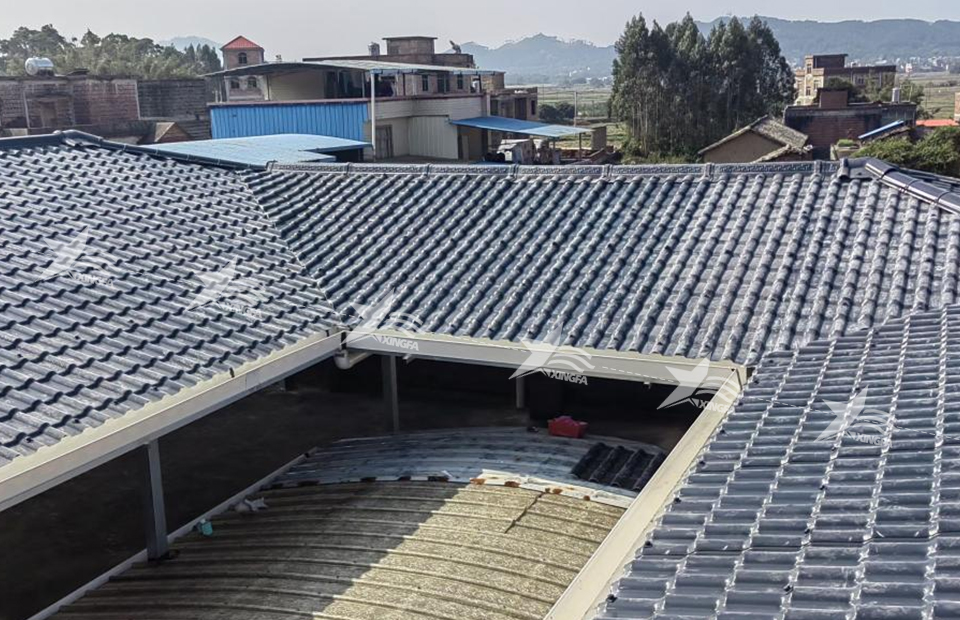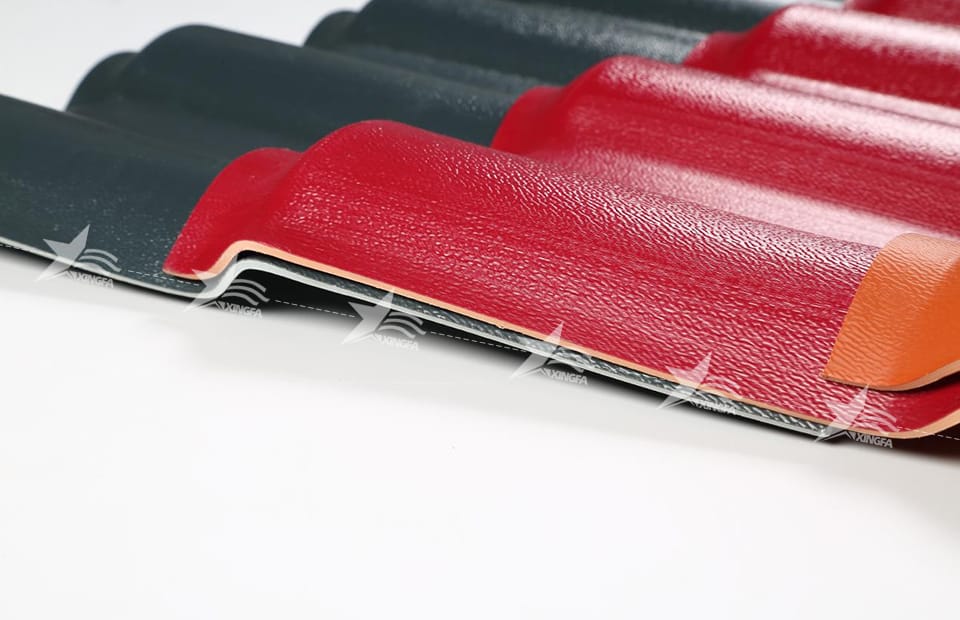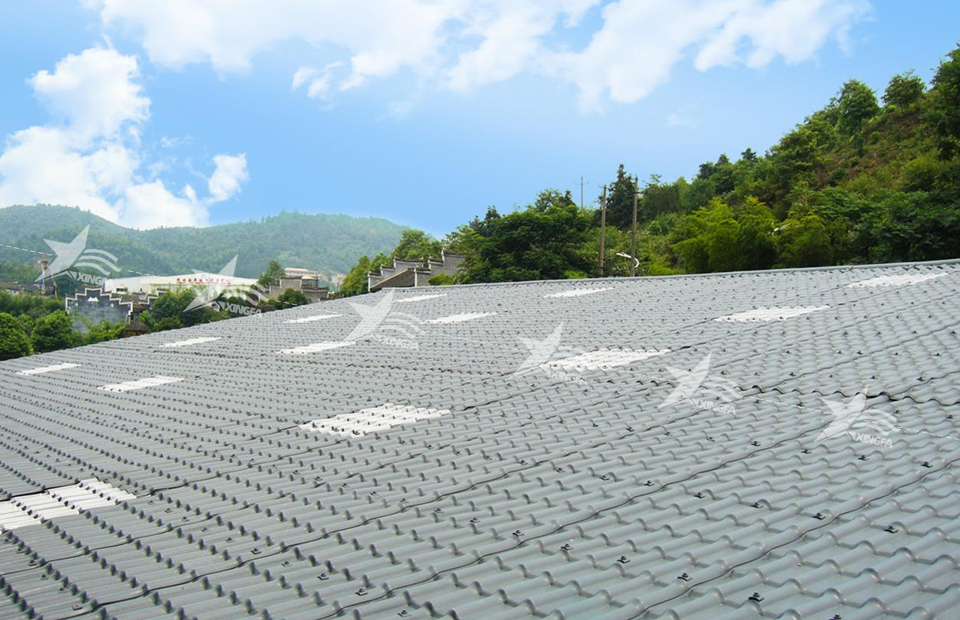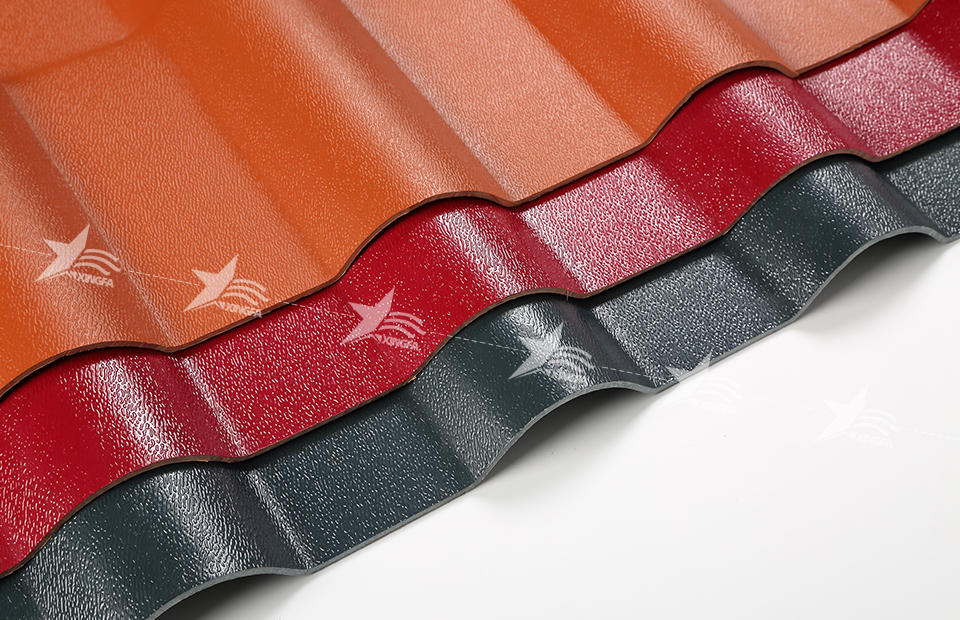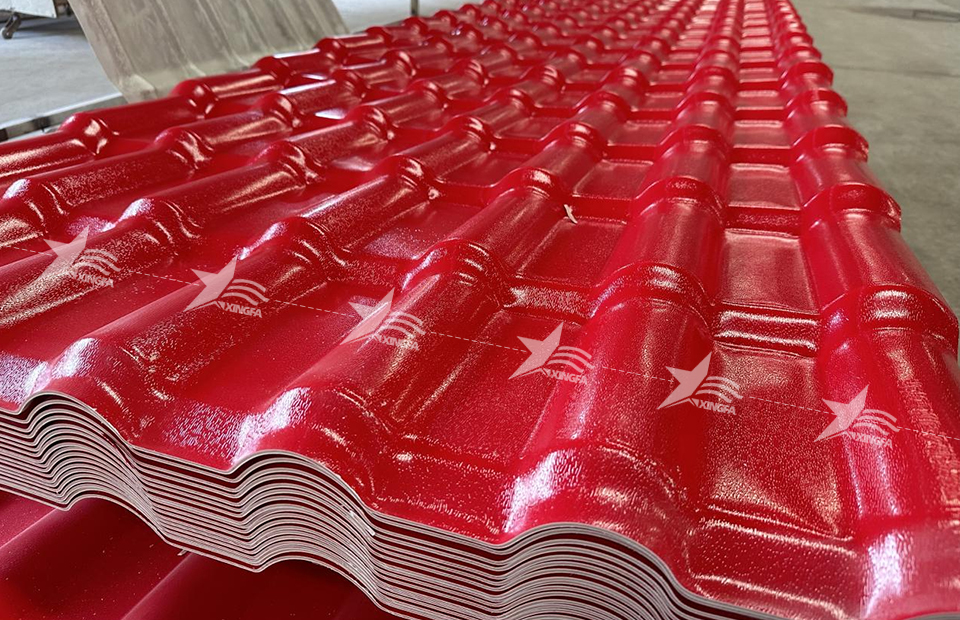The structure and quality of synthetic resin tiles directly affect their service life and performance. The following will analyze its key components and determining factors for you.
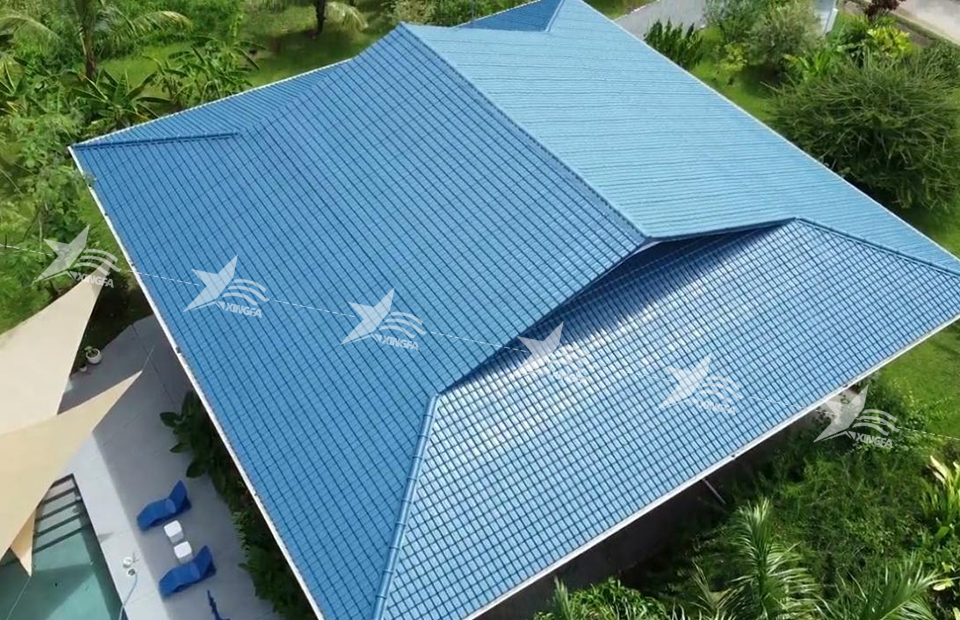
Synthetic resin is a high-molecular-weight polymer synthesized artificially and is one of the world’s three major synthetic materials. It is widely used in construction, automobiles, and other fields. As the main component of synthetic resin tiles, it features extremely high stability and superior performance, making it particularly suitable for long-term outdoor use.
The surface material of synthetic resin tiles is usually ASA (acrylate copolymer), which is the key to determining the durability of resin tiles. ASA materials have the following significant advantages:
Extremely strong weather resistance: ASA can effectively resist ultraviolet radiation and atmospheric oxidation. Its anti-aging performance is more than ten times that of ordinary ABS materials. It does not fade or age even after long-term use.
Superior mechanical properties: Similar to ABS, ASA combines excellent strength and toughness.
Good high-temperature resistance: adaptable to all kinds of extreme climates.
Strong anti-static ability: Less dust on the tile area, making cleaning easier.
